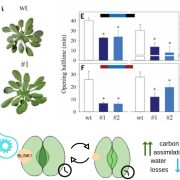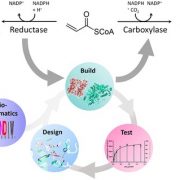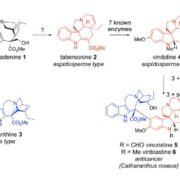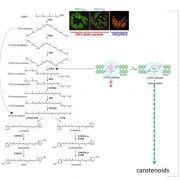Interviews with synthetic biologists: Michael Mendez
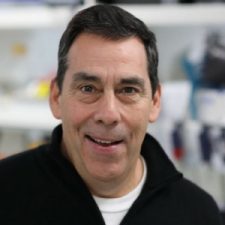 Synthetic biology is a set of tools, a way of thinking, the integration of engineering principles into biological sciences, and potentially the biggest opportunity for advances in plant sciences since PCR. Yet many struggle to define it, and fewer still grasp its full potential.
Synthetic biology is a set of tools, a way of thinking, the integration of engineering principles into biological sciences, and potentially the biggest opportunity for advances in plant sciences since PCR. Yet many struggle to define it, and fewer still grasp its full potential.
Now, four early-career synthetic biologists have conducted a set of video interviews with leaders in the field of plant synthetic biology, in both academic and industrial arenas.
In the second of the series Interviews with Synthetic Biologists, Steven Burgess, Visiting Scholar at the University of Illinois at Urbana-Champaign, interviews Michael Mendez CEO and co-founder of Renew Biopharma.
Mike Mendez has been involved with ten start-up companies and has been a founder of four. He is a leading innovator in biotechnology, and has developed platforms for production of recombinant fully human antibodies, membrane protein expression. He was also co-founder and vice president of technology at Sapphire Energy, where he transformed the field of microalgae engineering and created a trait mining platform to discover genes in algae that could be applied to agriculture. (Read more about Mike in Newsweek: The Promises and Perils of Synthetic Biology, March 11, 2015.)
For the past two years, Mike has been CEO of Renew Biopharma, a synthetic biology company that relies on molecular biology and pathway engineering to produce natural and novel cannabinoids that can cross the blood-brain barrier and target specific receptors associated with neuroinflammation and chronic pain.
Here, he talks to Steven Burgess about synthetic biology, algae, and natural products from plants.
What problem is Renew Biopharma looking to address?
It’s difficult to treat diseases of the brain because it’s difficult to get molecules across the blood-brain barrier. Cannabinoids clearly have the ability to get across the blood-brain barrier… we can design therapeutics around them.
How is Renew Biopharma’s approach different from conventional biotechnology?
It’s about numbers. It’s about cheap sequencing and it’s about cheap synthesis. Large numbers is at the heart of synthetic biology.
Why algae? Why not yeast?
Proteins require post-translational modifications. Algae does this quite well. A lot of algal technology came out of Sapphire Energy – its focus was to domesticate algae, to make it into an energy crop.
What excites you most about synthetic biology?
Because synthesis is so cheap, it’s allowing people to not be hemmed in by their ideas. Now, people can really look at a broad range of mutagenesis or proteins that have never been looked at before.
Do you have any advice for those considering careers in industry?
One of the greatest differences between academia and industry is … in industry, everything is collaborative. Some of your focus should always be in terms of your ability to have leadership, to work with others, and to work within a team.
Steven Burgess did his PhD at Imperial College London, and was a post doc with Julian Hibbard in Cambridge. He is currently a Visiting Scholar at the University of Illinois whose research interests are focused on improving photosynthetic performance of crops for increased yields, using conventional breeding, random mutagenesis and synthetic biology approaches. Follow Steven on Twitter at @sjb015.
Previously in this series: Steven Burgess interviews Professor Jennifer Nemhauser. Stay tuned for more in this series of Interview with Synthetic Biologists.


